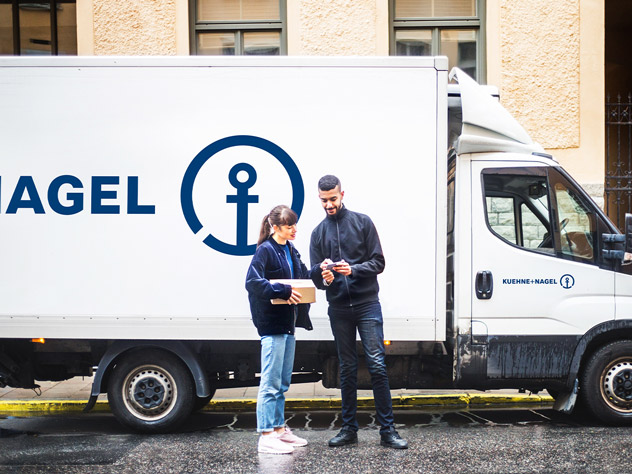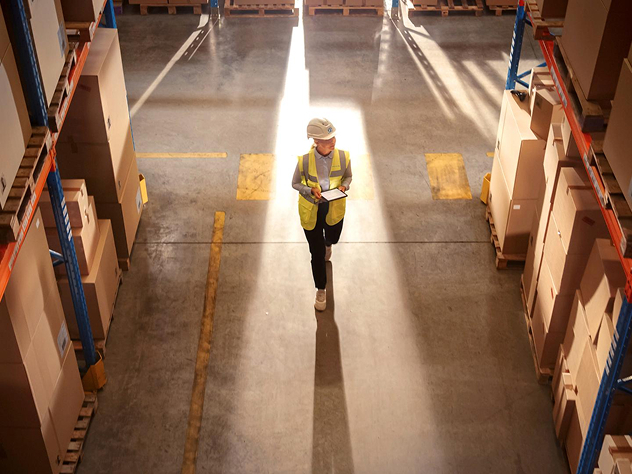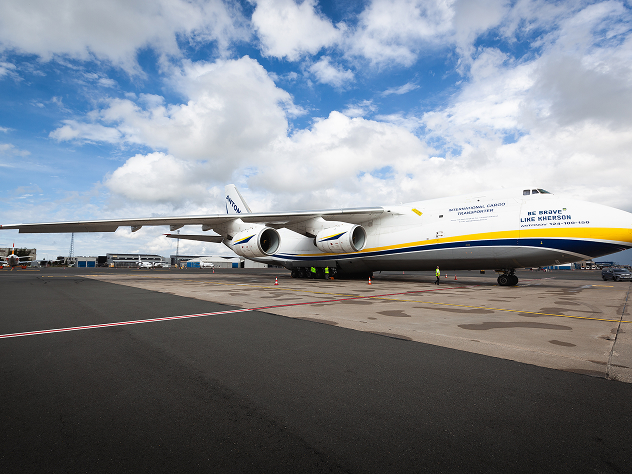About the Author

Since February 2018 Mark has been the National Customs and Trade Control Director for Kuehne+Nagel UK Ltd. Mark has spent some 40 years in the logistics industry, joining it via a dedicated Customs role that took him through the process of joining Single Market back in January 1993. His progression in this industry saw him spend a period of time working in the USA but prior to his current role, Mark spent 10 years as Kuehne+Nagel UK National Operations Director. Mark’s remit also includes the roll-out of Brexit within Kuehne+Nagel, covering Customers, Technology and People to ensure a smooth transition.
Representing Kuehne+Nagel, Mark has, since Dec 2017, positioned himself front and Centre with the UK Government being only one of two logistics providers sitting on the UK’s Governments Cross Border and Protocol Logistics Delivery working group. Once the UK Government secured the Withdrawal Agreement Bill (WAB) on the 31 January 2020, Mark’s UK Governments engagement changed and it was then formalised and Kuehne+Nagel began a different engagement that saw him take the role as a key stakeholder, trusted advisor and critical friend for twelve months to February 2021. Whilst the formal engagement has stopped, he remains as close to the Border and Protocol Delivery Group as ever, which includes working on the UK Governments initiative of having the most effective and efficient border in the world by 2025.
New territory - new challenges
The biggest challenge for us all (UK and EU) was that the Trade and Cooperation Agreement (TCA) - our Free Trade agreement between the UK and the EU - it was only announced on the 23 December 2020 and signed on 30 December 2020. It was applicable for goods moving as from 00:01 hrs (CET) on 1 January 2021, and consists of 2,555 pages of detailed information that businesses needed to read and understand for goods moving after this date.
Businesses which had only ever traded with the EU and not the Rest of the World, were completely unfamiliar with any custom requirements for trade that moves to or from any third country. The TCA needed to be read and understood in 2 days before it became applicable and most people/businesses were off or closed for the Christmas break – quite the challenge!
Within the agreement, the UK Government allowed for an easement for all UK imports from the EU: giving businesses 175 days from goods arriving at the UK port of arrival to submit their customs declaration. It helped in the short term for UK Imports, although we still believe there are some businesses still struggling to complete and submit declarations from 2021 even to this day.
Our biggest challenge was on UK Exports to the EU. Trying to get all 27 EU remaining countries to understand and interpret the rules of the TCA in a common manner over the EU Block was the most difficult area. Some countries, or even states within countries, wanted the description of the goods in the language of destination. Some wanted the weight of the goods to two decimal places, where most countries didn’t. The level of customs resource in the EU country/office of destination to accommodate the new requirements was not sufficient to deal with the demand during the day, let alone covering any requirements outside of office hours. In addition, the lack of other EU Government bodies (other than Customs) in place to deal with the new requirements for Product of Animal Origins at destinations was a huge challenge.
The first 120 days
As a result, the first four months was incredibly difficult for all traders, authorities, intermediaries, hauliers, drivers, Port Authorities, carriers and so on. Whilst there wasn’t the queues of lorries as predicted at the ports, this was mainly because of pre-Brexit preparation. This saw UK warehousing at full capacity, as traders protected themselves by maximising their stock levels to full capacity, to get through the first few months using the stock that they had brought in prior to 1 January 2021. The 175 day Easements on UK Imports from the EU, meant most vehicles could still just drive through the UK port to their destination, so they was no physical delay impact - just an administrative delay impact on UK Imports.
2022. Brexit stages 2 and 3
A year on, 1 January 2022 and we came to another hurdle, as the easement for UK Imports was withdrawn. Now all UK Import declarations have to be prepared and submitted prior to the goods departing the EU port of departure, unless they are covered by the Common Transit Convention and the goods went to an inland customs control area, either the UK Governments Inland Border Facilities or the Trader or Logistics providers own customs controlled location. Complex isn’t it.
Remarkably, whilst it was another huge change and operations were impacted, it only lasted about six weeks as most of the new process had settled down and were understood.
But we still had Brexit stage 3 due to come in place on the 1 July 2022: accommodating all of the new rules for Products of Animal Origin, Plant and Plant Products, Live Animal and the requirements for UK Import Safety and security requirements.
Involving considerable planning by all involved in the supply chain, preparations for this next intensely complex stage began. The work involved to accommodate these new rules was phenomenal. The realisation of the complexity eventually manifested itself within the UK Government Cabinet Office and on the 28 April 2022, the UK Government released a statement that said: "The remaining import controls on EU goods arriving in the UK will no longer be introduced this year, and that the UK Government will now review how to implement these remaining controls in an improved way that will start to be introduced at the end of 2023."
As a result, the industry started to settle into a normal state or so we thought.
The work never stops
Finally, we now need to bring in the new UK Government Customs System, Customs Declaration Services(CDS). Nothing at all to do with Brexit, but its roll-out was delayed completely because of Brexit (it was originally planned for 2017). This will happen in two-phases:
- All UK Imports will be required to be submitted on CDS as from midnight on 30 September 2022
- UK Exports, on CDS, from midnight 31 March 2023
As this is a UK Customs change, it impacts both EU origin and destined goods and also ROW goods that arrive via any mode of transport.
The challenges are plentiful, particularly for UK Importers of Record (IOR) who have their own Import deferment account to pay for any Duty and VAT due at the time of import. These IOR’s need to register themselves on the UK Government Gateway to gain access to CDS for visibility of all imports, duties and VAT accounted for against their deferment. This registration also requires the IOR to set up a new Direct Debit mandate with the new CDS system so that their deferment can be used as from 1 October 2022. Just another challenge for the industry to get over.
Looking back. Learning forward.
On reflection, we’ve weaved our way through Brexit and survived – despite immense pressures we made it. We increased our resource from 68 people managing our total customs to now 250 which reflects the needs of the new post Brexit requirements for the UK.
I believe one of the biggest challenge to UK and EU industry is the understanding of the rules of origin to claim that preferential or ‘free duty’ status on goods and having the confidence to apply this. We’re very aware of a number of organisations who’ve over paid duty because of this lack of understanding or the fear from sellers of adding a Statement of Origin and it being incorrect.
We’re here to help our customers as best we can – through whatever hurdles we face together.
Finally, Kuehne+Nagel continues to maintain its close relationship with the UK Government and their 2025 Border initiative, that of having the most effect and efficient border in the world. We continues to stay close and be involved in the elements that will make this happen, those being the UK Government ECO system of Trust (EOT), their new Trusted Trader Scheme and finally underpinning this all with a Single Trader Window System for all UK Government border to use in all border activities.








